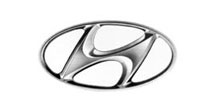Car Buying Tips: How to Set Your Car Budget
 Deciding on the car you want is fairly easy. We often have trouble with another aspect of car buying: deciding how much to make on car payments. We don't want to help you find out how much you can pay. We want to help you find out how much you should pay. There are two scenarios you might find yourself in.
Deciding on the car you want is fairly easy. We often have trouble with another aspect of car buying: deciding how much to make on car payments. We don't want to help you find out how much you can pay. We want to help you find out how much you should pay. There are two scenarios you might find yourself in.
Scenario A: I'm Paying Cash
If you have the money to knock out the car's price in one payment, it makes determining your car budget a little easier. Instead of worrying about what you can pay each month, you just need to figure out how much of your savings you can get away with paying safely. Paying cash prevents the need to pay interest (extra money, in excess of the sale price, paid in monthly portions) for a car loan. Therefore, it's attractive. However, it can have risks.
One concern is emergencies. If something expensive comes up unexpectedly, you want to have the money to pay for it. For example, what if your son's car needs a new transmission? What if you find a stray dog and you just can't part with the little stinker? Now you have to pay for dog food. These things can be expensive. Make sure you have money in your bank account for them instead of spending it on "more" car than you need.
Another concern is upcoming expenses. There's always something you'll need to spend on. Whether it's a new grill, a new roof or a vacation, try to keep it in mind when you decide how much to spend on your new vehicle. You don't want to have to save money for another year or so in order to make things happen.
Scenario B: I'm Getting a Loan
Experts usually recommend keeping at least 20% of your income. There are a few steps to take to figure out how much that is (i.e. how much to make on car payments)
1. Find out the amount of income you currently put towards bills and other monthly or weekly expenses. Look through your bank account or your bills, if you keep a copy of them, and add them up. Add your guitar lessons, weekly golf course fees, and anything else that you know you'll continue paying regularly, unless you plan to cancel them because you're buying a car.
2. Work out how much your auto loan payments will be. There are two ways to do this. First, you can go to the dealership and ask. The second option is to calculate it yourself. You can use a calculator like this one or, if you're good at math, use the formula below.
A = P * (r (1 + r) n) / ((i + r)n - 1)
where:
A = the monthly payment
P = the principal (total sale price of the vehicle)
r = the interest rate per month (the annual interest rate divided by 12)
n = the total number of months in the loan
3. Add the car payment and your other expenses together and divide by your monthly income. That will give you your expenses as a percentage of income. Subtract it from 1 to get your potential savings and a percentage of income. If it's 20% or more, you're good to go. If it's lower, we recommend looking for a less expensive car.
It's important to try to keep your expenses down. Part of that goal is achieved by eliminating "wants." Sure, you can have some wants but if you are concerned about your finances at all, try to minimize them. Doing this all depends on your life's circumstances. If you have 5 children, a car that seats 7 people is a "need" rather than a want. Usually, luxury features like leather seats and upgraded chrome wheels are "wants" because their absence won't interfere with the driver's daily activities. It will be easier to make ends meet, with regard to your car budget, if you're not trying to pay for too many wants.
Need to find the best deal around on your new vehicle? Make sure to get quotes online, for free. Click here to get them in just a few moments.








































